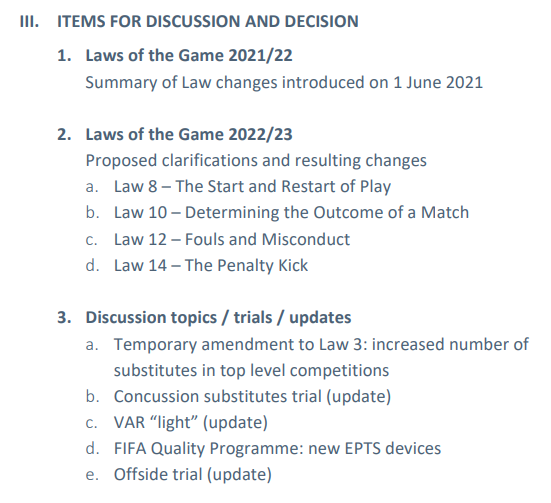
Wondering when the next edition of the UEFA Nations League is?
- Draw is today at 5pm GMT
- England in pot 3 and face a very strong group
- Games played in June 2022 (x4), September 2022 (x2)
- UNL takes up the six international dates prior to the World Cup
- Finals in June 2023
- Draw is today at 5pm GMT
- England in pot 3 and face a very strong group
- Games played in June 2022 (x4), September 2022 (x2)
- UNL takes up the six international dates prior to the World Cup
- Finals in June 2023
England will be drawn against one team from each of these three pots to form their group.
POT 1
Belgium
France
Italy
Spain
POT 2
Portugal
Netherlands
Denmark
Germany
POT 4
Wales
Austria
Czech Republic
Hungary
POT 1
Belgium
France
Italy
Spain
POT 2
Portugal
Netherlands
Denmark
Germany
POT 4
Wales
Austria
Czech Republic
Hungary
Format for Euro 2024 qualifying will not be confirmed until June, including how teams might earn playoff spots via the Nations League.
It's likely UEFA will want playoff paths via this route, though the same method as 2020 cannot be used as Germany take an auto slot as hosts.
It's likely UEFA will want playoff paths via this route, though the same method as 2020 cannot be used as Germany take an auto slot as hosts.
England are in pot 3 because the draw is seeded on performance in the 2020-21 UEFA Nations League, when England finished third behind Belgium and Denmark in their group.
Promotion and relegation will happen in each group, though we wait the international calendar post 2024.
Promotion and relegation will happen in each group, though we wait the international calendar post 2024.
Scotland draw one from each pot in Nations League draw.
Must win group for Pot 2 in Euro 2024 qualifying draw (if same format as 2020).
Ukraine
Sweden
Bosnia & Herzegovina
Iceland
Israel
Romania
Serbia
Republic of Ireland
Slovenia
Montenegro
Albania
Armenia
Must win group for Pot 2 in Euro 2024 qualifying draw (if same format as 2020).
Ukraine
Sweden
Bosnia & Herzegovina
Iceland
Israel
Romania
Serbia
Republic of Ireland
Slovenia
Montenegro
Albania
Armenia
Wales, promoted to League A, will draw one from each pot:
POT 1
Belgium
France
Italy
Spain
POT 2
Portugal
Netherlands
Denmark
Germany
POT 3
England
Poland
Switzerland
Croatia
POT 1
Belgium
France
Italy
Spain
POT 2
Portugal
Netherlands
Denmark
Germany
POT 3
England
Poland
Switzerland
Croatia
Republic Ireland draw one from each pot and, like Scotland, need to win the group to be pot 2 in the Euro 2024 qualifying draw:
Ukraine
Sweden
Bosnia & Herzegovina
Iceland
Finland
Norway
Scotland
Russia
Slovenia
Montenegro
Albania
Armenia
Ukraine
Sweden
Bosnia & Herzegovina
Iceland
Finland
Norway
Scotland
Russia
Slovenia
Montenegro
Albania
Armenia
Northern Ireland have been relegated to League C, so should be no better than Pot 4 in the Euro 2024 qualifying draw. One from each pot:
Greece
Belarus
Luxembourg
North Macedonia
Lithuania
Georgia
Azerbaijan
Kosovo
Kazakhstan or Moldova
Cyprus or Estonia
Gibraltar
Faroes
Greece
Belarus
Luxembourg
North Macedonia
Lithuania
Georgia
Azerbaijan
Kosovo
Kazakhstan or Moldova
Cyprus or Estonia
Gibraltar
Faroes
Wales must be happy with their Nations League draw, considering the pots: Belgium, Netherlands, Poland.
But why is it important? Teams who finish first and second, and the best three third, are likely to be seeded in the Euro 2024 draw.
Gives Wales a real chance.
But why is it important? Teams who finish first and second, and the best three third, are likely to be seeded in the Euro 2024 draw.
Gives Wales a real chance.
It's also important for Scotland and Republic of Ireland.
They have been drawn together, along with Ukraine and Armenia.
League B group winners, and the best-ranked second placed team, set to be in Pot 2 for the Euro 2024 draw.
Provides a great chance to qualify automatically.
They have been drawn together, along with Ukraine and Armenia.
League B group winners, and the best-ranked second placed team, set to be in Pot 2 for the Euro 2024 draw.
Provides a great chance to qualify automatically.
Northern Ireland are in League C, and will play Greece, Kosovo and either Cyprus or Estonia.
NI will be doomed to Pot 4 in the Euro 2024 draw (though must finish top 2 or as best third-place team).
More importantly, they must win the group for a likely guaranteed playoff path.
NI will be doomed to Pot 4 in the Euro 2024 draw (though must finish top 2 or as best third-place team).
More importantly, they must win the group for a likely guaranteed playoff path.
Scotland qualified for Euro 2020 as a League C group winner, and their Nations League experience has helped them greatly to improve.
Can this offer the same to Northern Ireland?
Likely group winners of Leagues A, B and C will be guaranteed one of the 3 4-team playoff paths.
Can this offer the same to Northern Ireland?
Likely group winners of Leagues A, B and C will be guaranteed one of the 3 4-team playoff paths.
• • •
Missing some Tweet in this thread? You can try to
force a refresh











